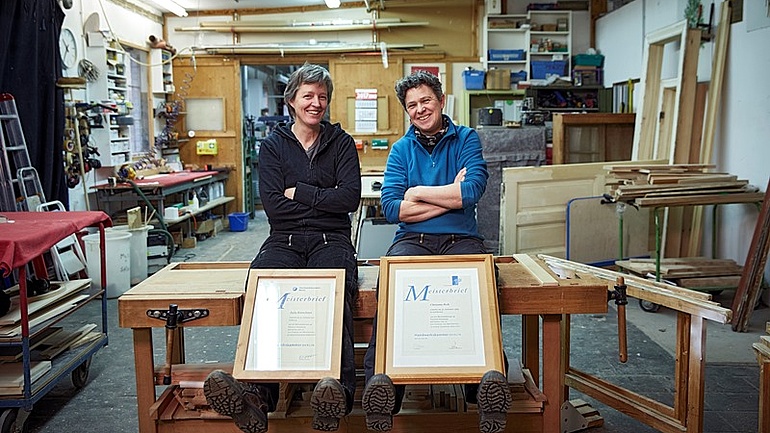The Skilled Crafts Organisation and the ZDH

ZDH/Werner Schüring
Being responsible for the whole of the German skilled crafts sector, the skilled crafts organisation is divided into two pillars: the chambers of skilled crafts and the national confederations of skilled crafts.
Chambers of Skilled Crafts
Chambers of skilled crafts are non-profit corporations under public law with compulsory membership for each skilled craft enterprise. The chambers offer a wide spectrum of services ranging from advice on technical, financial and legal matters to an extensive range of training and further education courses in their own vocational training centres. They keep the crafts register and are responsible for holding examinations. As self-governing business entities they also represent the interests of the crafts sector in their chamber district vis-à-vis the political institutions and the public administration. This task is taken over at federal state level by a state’s working group of chambers or the state skilled crafts sector representatives. The 53 chambers of skilled crafts are con-federated at national level in the German Confederation of Chambers of Skilled Crafts (DHKT).
National Confederations of Skilled Crafts
The national confederations of skilled crafts are organisations with a voluntary membership. They represent the specific specialist interests of a particular trade sector or skilled craft. The confederations support their member companies with a broad range of sector-specific advisory and other services. They also fulfil the function of employers’ organisations, e.g. they are engaged in collective bargaining or are the bodies responsible for the common institutions of the social partners.The ‘bottom-up’ structure of the skilled crafts sector is as follows: self-employed craftspeople can form a ‘guild’ at local level. Membership is voluntary. Various guilds combine to form ‘Local Councils of Skilled Crafts’. Regional confederations exist at federal state level. The 36 national confederations of skilled crafts and 13 other professional associations together form the German Association of Skilled Crafts Confederations (UDH).
The ZDH
DHKT and UDH are confederated in the ZDH (German Confederation of Skilled Crafts). ZDH has its headquarters in Berlin.
The purpose of the ZDH is to reach a consensus on all major issues in crafts policy. It represents the overall interests of the skilled crafts sector vis-à-vis the Bundestag, the Federal Government and other central authorities, the European Union and international organisations.
The ZDH is one of the central organizations of German industry and also cooperates with partner associations in the Mittelstand working group.
At European level, ZDH is a member of SMEunited (formerly UEAPME) and of Small Business Standards, the SME association responsible for standardisation. ZDH has a representation to the European Union in Brussels, responsible for coordinating activities related to European policy affecting skilled craft companies. It also cooperates with partner organisations at European and international levels as well as with other European confederations and the institutions of the European Union.

